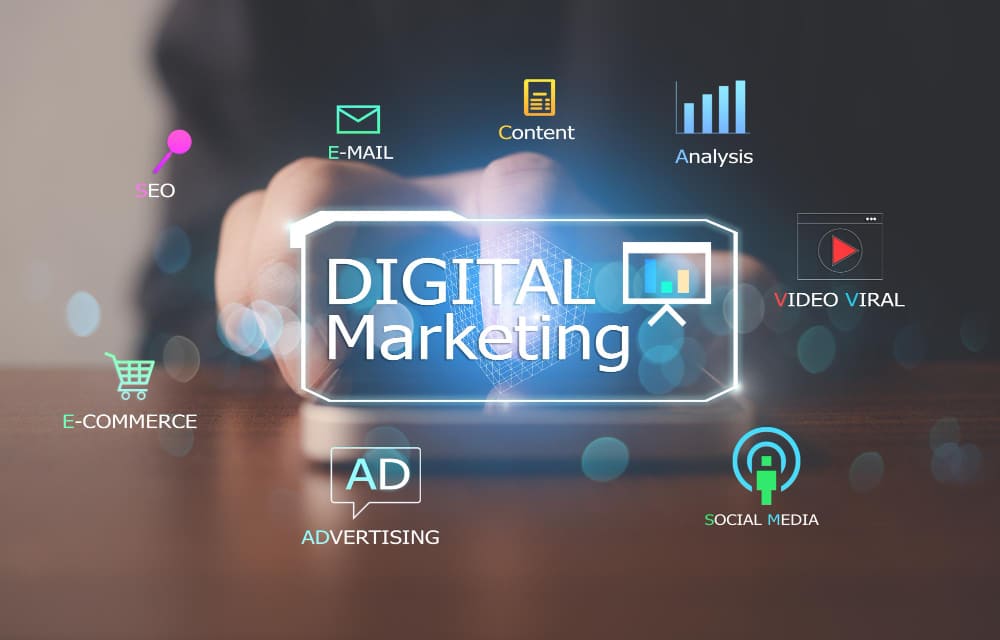In the ever-evolving landscape of the delivery industry, digital marketing has emerged as a critical tool for success. The rapid rise in e-commerce, changes in consumer behaviors, and advancements in technology have all underscored the importance of digital marketing strategies for businesses aiming to thrive in this competitive sector. Here we discuss about the pivotal role of digital marketing in the future of the delivery industry, highlighting its benefits, strategies, and potential impacts.
Enhanced Customer Reach and Engagement
Digital marketing offers unparalleled opportunities for the delivery industry to expand its customer base. Through social media, email marketing, and online advertising, delivery companies can reach a broader audience much more efficiently than traditional marketing methods. Moreover, these platforms allow for interactive and direct communication with customers, fostering stronger relationships and customer loyalty. The ability to engage customers with personalized content, promotions, and updates about their deliveries enhances the overall customer experience, which is central to customer retention in a competitive market.
Data-Driven Decision Making
One of the most significant advantages of digital marketing is the abundance of data it provides. Delivery companies like Shiply can track and analyze customer behavior, preferences, and feedback through their online interactions. This data is invaluable for making informed decisions about service adjustments, marketing strategies, and customer service enhancements. By understanding what, where, and how customers prefer to receive their deliveries, companies can optimize their operations to better meet customer needs, resulting in increased efficiency and satisfaction.
Cost-Effectiveness
Digital marketing is notably cost-effective compared to traditional marketing methods. Platforms like Facebook, Instagram, and Google Ads offer advanced targeting options, allowing delivery companies to reach specific demographics at a lower cost. Additionally, the ability to scale campaigns and adjust them in real time provides a flexibility that is cost-efficient and effective in managing marketing budgets. This is particularly beneficial for startups and small delivery businesses that may have limited financial resources.
Real-Time Customer Service
The immediacy of digital platforms allows for real-time customer service, which is crucial in the delivery industry. Customers expect quick resolutions to their inquiries and issues. Digital marketing tools such as live chat, social media, and automated responses not only provide instant communication but also help build trust and reliability—key factors in customer satisfaction and loyalty.
Increased Visibility and Brand Development
In the digital age, a strong online presence is vital for brand recognition and development. SEO (Search Engine Optimization) and content marketing play critical roles in enhancing online visibility. By optimizing website content for search engines, delivery companies can rank higher in search results, attracting more traffic to their sites. Content marketing, through blogs, videos, and infographics, helps in educating customers about services and promotions, while also establishing the company’s authority in the delivery sector.
Leveraging Emerging Technologies
Digital marketing is not static; it evolves with technological advancements. For instance, the integration of AI and machine learning in digital marketing allows for more precise targeting and personalization of marketing campaigns. Additionally, AR (Augmented Reality) can provide customers with innovative experiences, such as visualizing their deliveries in real-time or exploring products in a virtual setup before purchasing.
Sustainability and Corporate Responsibility
Digital marketing also aligns with the increasing consumer demand for sustainability. By promoting green initiatives and sustainable practices, delivery companies can enhance their brand image and appeal to environmentally conscious consumers. Digital platforms are ideal for communicating such messages effectively and authentically, fostering a brand image that resonates with modern values.
Conclusion:
As the delivery industry continues to grow and evolve, digital marketing will remain a cornerstone of its success. The ability to reach a wider audience, engage with customers on a personal level, utilize data for strategic planning, and operate within budget constraints makes digital marketing an indispensable tool. Furthermore, the adaptability to incorporate new technologies and respond to consumer demands for sustainability are essential for future growth and sustainability. For delivery companies aiming to lead in their market, embracing digital marketing is not just a strategy; it’s a necessity for staying relevant and competitive in the fast-paced world of tomorrow.
Additional:




